Introduction to the Importance of Off-Page SEO for Your Website
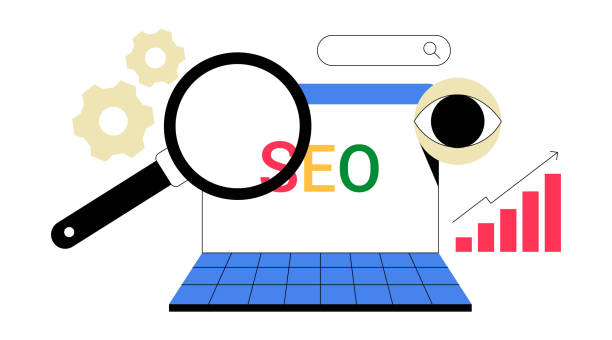
In today’s competitive web world, being seen amidst a vast amount of content and websites has become a fundamental challenge.
#SEO, or Search Engine Optimization, is the golden key to achieving this goal.
Among various types of SEO, the topic of Off-Page SEO or Off-Page SEO holds special importance.
This part of optimization includes all actions taken outside your website to increase its authority and credibility with search engines.
In fact, search engines like Google don’t judge your website solely based on its content and internal structure, but also pay special attention to its external reputation and references.
Imagine your website is a library; the more other books refer to your books as a reliable source, the more valuable and credible your library becomes.
Off-Page SEO plays exactly this role.
This area includes activities such as building high-quality backlinks, active presence on social networks, branding, and even indirect mentions of your brand name.
The ultimate goal of these actions is to build trust in the eyes of search engines and, as a result, improve your website’s ranking in search results.
Without a strong Off-Page SEO strategy, even the best on-page content may not be well-seen, and your efforts in producing valuable content may remain fruitless.
This is a vital part of any digital marketing strategy.
Are you losing business opportunities because of an outdated website? With Rasawweb, solve the problem of not attracting potential customers through your website forever!
✅ Attract more high-quality leads
✅ Increase brand credibility in the eyes of customers
⚡ Get a free consultation for corporate website design
Off-Page SEO vs. On-Page SEO: An Expert Look
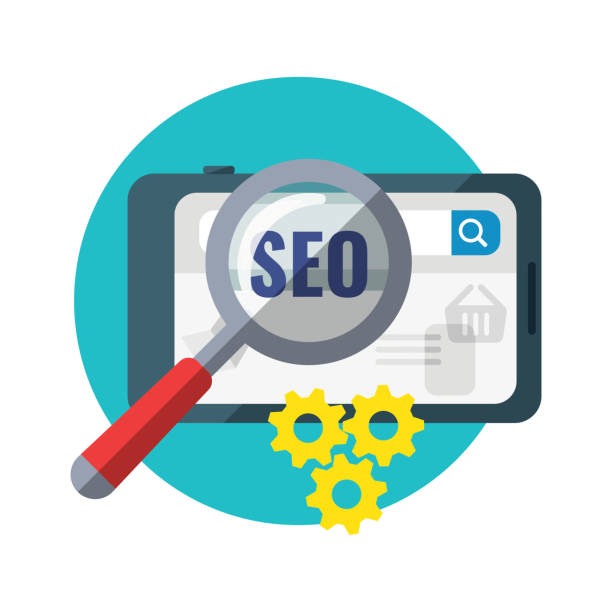
To better understand the concept of Off-Page SEO, it’s necessary to first grasp its key differences from On-Page SEO.
On-Page SEO (On-Page SEO) refers to a set of activities performed directly on your website and under your full control.
These activities include content optimization, keyword selection, URL structure, Title Tags and Meta Descriptions, website loading speed, responsive design, and image optimization.
The goal of On-Page SEO is to create a user-friendly website that adheres to search engine technical standards.
However, Off-Page SEO, as its name suggests, includes all activities performed outside your direct control over your website, aiming to increase the website’s authority and trust.
The main part of Off-Page SEO is building high-quality backlinks; that is, links from other websites to your site.
But this is not limited to links alone; activities on social media, brand mentions in the online space, and content marketing on other platforms are also considered Off-Page SEO actions.
While On-Page SEO forms the foundation of an optimized website, Off-Page SEO extends its power and influence across the web.
Both are complementary, and to achieve top rankings in search results, having a comprehensive and strong strategy in both areas is essential.
Ignoring one means losing immense potential for traffic and visibility.
What are Backlinks and Why are They Crucial in Off-Page SEO?

At the heart of any Off-Page SEO strategy lies the concept of “backlink”.
A backlink, sometimes also referred to as an “inbound link” or “Inbound Link”, is a link from one website to yours.
From the perspective of search engines, every high-quality backlink is like a vote of confidence for your website’s content and credibility.
The more numerous and higher the quality of these votes, the more Google and other search engines recognize your site as authoritative and trustworthy, thus assigning you a higher ranking in search results.
Why are backlinks crucial in Off-Page SEO? The main reason is that search engines consider backlinks an important indicator of a website’s popularity and authority.
If credible and relevant websites link to you, this sends a strong signal to the search engine that your content is valuable, authoritative, and trustworthy.
However, the important point is the “quality” of the backlink, not merely its “quantity”.
One backlink from a high-traffic and authoritative website in your field is far more valuable than dozens of backlinks from low-authority or irrelevant sites.
Off-Page SEO steps for backlinks include identifying opportunities, creating linkable content, reaching out to websites, and requesting links.
Unethical techniques such as buying links or excessive link exchange should be avoided, as these actions can be detected by Google’s algorithms and lead to penalties for your website.
Therefore, focusing on building natural and organic backlinks is the cornerstone of success in Off-Page SEO.
To clarify the importance of backlinks, we can compare their quality in a table:
| Backlink Type | Characteristics | Impact on Off-Page SEO |
|---|---|---|
| Natural Link (Dofollow) | From reputable and relevant sites, valuable linked content | Strong increase in authority and ranking (best type) |
| NoFollow Link | With rel=”nofollow” tag, transfers less SEO value | Indirect help with traffic and branding, low direct value in Off-Page SEO |
| Spam or Low-Quality Link | From irrelevant sites, with low-value or automatically generated content | Can lead to Google penalties (very harmful) |
Choosing the right approach to acquiring backlinks is the backbone of your success in Off-Page SEO.
Types of Backlinks and Their Quality: An Expert Explanation
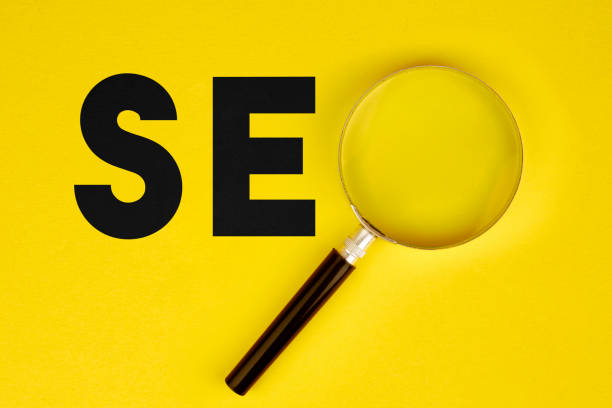
As mentioned earlier, not all backlinks are of the same kind and value.
Backlink quality is a very important factor in its impact on Off-Page SEO.
Generally, backlinks can be categorized based on various characteristics, the most important of which include Follow, NoFollow, Sponsored, and UGC (User Generated Content) links.
DoFollow Links: These links are considered the most common and valuable type of backlink.
When a website links to you without a specific tag, this link is by default DoFollow.
This type of link, “authority” or “Link Juice” is transferred from the source site to the destination site, sending a positive signal to search engines that your website is valuable.
These directly impact your ranking in Off-Page SEO.
NoFollow Links: These links are identified by the rel="nofollow" tag.
The purpose of this tag is to tell search engines not to pass “Link Juice” through this link or consider it an endorsement of authority.
However, NoFollow links can still be beneficial in an Off-Page SEO strategy; they can drive direct traffic to your site and help diversify your link profile, which looks more natural to search engines.
A prime example is links placed in blog comments or forums.
Sponsored Links: These links are identified by the rel="sponsored" tag and are used for links created as advertisements or through financial payments.
Google requires webmasters to mark paid links with this tag to maintain transparency.
Failure to use this tag for paid links can lead to penalties.
The impact of these links on Off-Page SEO is not direct and they are primarily used for traffic and branding.
UGC Links (User Generated Content): These links are identified by the rel="ugc" tag and are used for links created by users in sections such as comments, forums, or profiles.
This tag informs Google that the responsibility for the linked content lies with the user themselves, not the website owner.
Backlink quality, in addition to the tag type, also depends on other factors:
- Domain Relevance: Is the linking site in your field of activity? A link from relevant sites is much more valuable.
- Domain Authority: Does the linking site have high authority and ranking in search engines?
- Link Placement: A link placed within the main body of the content is usually more valuable than one in the footer or sidebar.
- Anchor Text: The text on which the link is placed.
Relevant and natural anchor text helps search engines understand the topic of the destination page.
Ultimately, a diverse link profile that includes a mix of Follow, NoFollow, and even Sponsored (with appropriate tags) links is more natural and stronger than a profile consisting of only one type of link.
This diversity is key in Off-Page SEO.
Did you know that your company’s website is the first point of contact for 75% of potential customers?
Your website is the face of your brand. With **Rasawweb**’s corporate website design services, build an online presence that earns customer trust.
✅ Create a professional and lasting brand image
✅ Attract target customers and increase online credibility
⚡ Get a free consultation from **Rasawweb** experts!
Techniques for Building Natural and High-Quality Backlinks: A Practical Guide
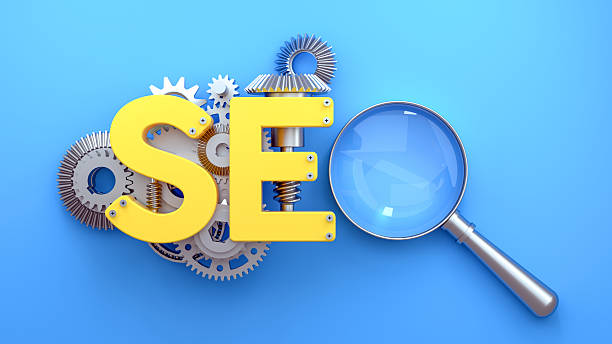
Building natural and high-quality backlinks forms the core of a successful Off-Page SEO strategy.
This process is time-consuming and requires patience and persistence, but its results bring greater stability in Google rankings.
Here are some of the most effective techniques:
1.
Creating Valuable and Linkable Content (Linkable Assets): This is the first and most important step.
If your content is not good and unique enough for others to want to link to it, your subsequent efforts will be fruitless.
Content such as data-driven infographics, original research, free tools, comprehensive guides, and in-depth articles have high potential for attracting natural links.
Due to their high educational or informational value, these types of content are easily referenced by other websites as sources and significantly contribute to strengthening your Off-Page SEO.
2.
Sponsored Articles and Guest Posting: Sponsored articles or guest posting mean writing high-quality and relevant articles for other websites in your field.
In these articles, you can place one or more links to your own website.
This method, in addition to acquiring backlinks, also helps increase brand awareness and drive direct traffic.
The key point is that the content of the guest post must be genuinely valuable to the host site’s audience and not solely promotional.
3.
Broken Link Building: This technique involves finding broken links (404 Error) on websites relevant to your niche.
After identifying these links, you can contact the website owner and suggest replacing the broken link with a relevant and high-quality page from your own website.
This method is a win-win; you gain a backlink, and the host website resolves its broken link issue.
This is considered a completely natural approach for Off-Page SEO.
4.
Finding Link-Worthy Resources (Resource Pages): Many websites have pages that provide a list of useful resources and tools in a specific field.
By identifying these pages and ensuring the quality of your content, you can contact their owners and suggest that they add your website to their list of resources.
5.
Media Coverage and Public Relations (PR & Media Coverage): If you have unique content or news, you can introduce it to journalists and media outlets.
If your content is engaging, it will likely be linked to, and these types of links usually come from high-authority news websites, which have an excellent impact on Off-Page SEO.
6.
Content Syndication: Republish your content on other platforms like Medium or LinkedIn Pulse and include a link to the original source at the end.
This can lead to greater visibility for your content and the acquisition of new links.
Finally, remember that backlink building is an ongoing process that requires continuous analysis and monitoring to ensure links remain high-quality and natural.
Focusing on adding value to others is the best way to succeed in Off-Page SEO.
How Do Social Networks Play a Role in Off-Page SEO?

In recent years, the role of social networks in Off-Page SEO has become a hot and debatable topic.
While direct links from social networks, due to having a NoFollow tag (in most cases), do not directly transfer significant “Link Juice”, an active and strategic presence on these platforms can have very positive indirect effects on your website’s Off-Page SEO.
The first and most important impact of social networks is increasing Brand Awareness.
The more your brand name is seen on social networks, the more people will search for it, and this increase in Direct Searches sends a strong positive signal to Google.
Google gives more credibility to brands that people actively search for.
This, in turn, helps strengthen domain authority and ultimately improves ranking in search results.
The second important role is driving traffic to the website.
Sharing your website’s content on social platforms can direct many visitors to your site.
Increased traffic, especially targeted and high-quality traffic, can reduce the Bounce Rate and increase the average Dwell Time.
These metrics are also important positive signals for search engines and can indirectly impact your Off-Page SEO.
The third aspect is encouraging sharing and acquiring natural backlinks.
When your content goes viral on social networks, the likelihood of bloggers, journalists, or other website owners seeing it and deciding to link to it significantly increases.
In other words, social networks can act as a catalyst for the natural link-building process.
A popular piece of content on Facebook or Twitter can lead to a sponsored article or a mention on a reputable blog, which directly impacts Off-Page SEO.
Additionally, Social Signals such as likes, comments, and shares, although not directly mentioned in Google’s ranking algorithms, act as secondary and supporting factors.
They indicate the popularity and appeal of your content and can help Google discover new and popular content.
Therefore, although social networks are not a substitute for direct link building, they are an integral part of a comprehensive Off-Page SEO strategy.
Continuous and targeted activity on these platforms can indirectly but effectively help improve your website’s ranking and establish your brand’s credibility in the online space.
Off-Page SEO and Domain Authority (DA/DR): A Deep Dive

One of the key concepts consistently raised in the discussion of Off-Page SEO is “Domain Authority” (DA) and “Domain Rating” (DR).
These are metrics provided by SEO tools like Moz (for DA) and Ahrefs (for DR) to measure a website’s strength and credibility in the eyes of search engines.
Although these metrics are not directly used by Google, and Google has its own internal algorithms, they serve as excellent indicators for estimating a website’s Off-Page SEO strength and its potential for ranking.
Domain Authority (DA): This metric is provided by Moz and is a score from 1 to 100 that predicts how likely a website is to rank in search results.
DA is calculated based on several factors, the most important of which is the number and quality of backlinks to a website.
The higher the DA, the greater the domain’s authority, indicating a stronger Off-Page SEO profile.
Domain Rating (DR): This metric is provided by Ahrefs and is also a score from 1 to 100.
DR essentially measures the strength of a website’s backlink profile based on the number of high-quality backlinks and the number of Referring Domains.
The higher the DR, the more numerous and higher quality the backlinks from different and authoritative domains, which directly points to the strength of a site’s Off-Page SEO.
Why are these metrics important for Off-Page SEO?
1.
Comparison Metric: DA and DR allow you to compare your website’s Off-Page SEO strength with your competitors.
2.
Choosing Link Building Opportunities: When trying to acquire backlinks, these metrics help you identify reputable and powerful sites for link building.
A link from a site with high DA/DR has more value.
3.
Evaluating SEO Campaign Impact: An increase in your website’s DA/DR indicates the success of your Off-Page SEO efforts.
There is a strong correlation between your Off-Page SEO efforts and the increase in these metrics.
Focusing on acquiring backlinks from authoritative and relevant sources directly increases your DA and DR, consequently helping to improve your ranking in search engines.
To better understand, we compare these two metrics in the table below:
| Feature | Domain Authority (DA) | Domain Rating (DR) |
|---|---|---|
| Developer Tool | Moz | Ahrefs |
| Primary Metric | Predictive power of search ranking | Backlink profile strength |
| Influencing Factors | Number and quality of backlinks, domain age, social connections, etc. | Number of referring domains, quality and quantity of backlinks |
| Scale | 1 to 100 (logarithmic) | 1 to 100 (logarithmic) |
In any case, the goal of all Off-Page SEO activities is to improve these indicators and, ultimately, achieve better rankings in Google.
Common Mistakes in Off-Page SEO Implementation and How to Avoid Them
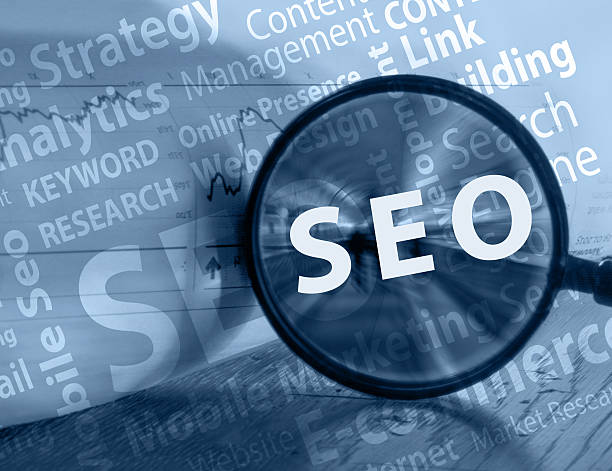
As with any other part of SEO, there are common mistakes in implementing an Off-Page SEO strategy that can not only be fruitless but even lead to penalties for your website by search engines.
Understanding these mistakes and knowing how to avoid them is crucial for sustainable success in Off-Page SEO.
1.
Buying Backlinks or Participating in Link Networks: This is one of the biggest mistakes.
Google explicitly prohibits the buying and selling of links intended to manipulate rankings.
Google’s algorithms, especially Penguin, are designed to identify and penalize websites participating in link networks.
This can lead to a severe drop in ranking or even the removal of your site from search results.
Always seek natural and organic backlinks.
This is a fundamental principle in Off-Page SEO.
2.
Sole Focus on Backlink Quantity Instead of Quality: As previously mentioned, backlink quality is far more important than quantity.
Receiving 1000 links from low-quality and spammy sites not only offers no benefit but can actually harm your site.
Conversely, even 10 high-quality links from authoritative and relevant domains can have a tremendous impact on your ranking.
In Off-Page SEO, ‘where’ and ‘from where’ you get links is always more important than ‘how many’.
3.
Over-optimization of a Single Anchor Text: If all your backlinks use the same specific anchor text (link text), this sends an unnatural signal to Google and can be identified as an attempt to manipulate rankings.
A healthy and natural link profile should include a variety of anchor texts; including brand name, raw URL, generic anchor texts (like “click here”), and various keywords.
This diversity is essential for Off-Page SEO.
4.
Ignoring the Page Load Speed of the Linking Site: This point is a bit more complex, but if a site linking to you has a very slow load speed or provides a poor user experience, this might indirectly affect Google’s perception of you.
Although this isn’t a direct mistake in Off-Page SEO, paying attention to the overall quality of linking sites is important.
5.
Ignoring the Disavow Process: If you discover that spammy or harmful backlinks are pointing to your site (often created by competitors or black-hat SEO activities), you should use the Google Disavow Tool to tell Google to disregard these links.
Failure to manage harmful links can negatively impact your ranking in the long run.
6.
Not Analyzing Competitors: Ignoring the Off-Page SEO strategy of successful competitors is a missed opportunity.
By analyzing competitors’ backlink profiles, you can discover new link-building opportunities and optimize your own strategy.
By avoiding these mistakes and focusing on ethical and long-term approaches, you can achieve a strong and sustainable Off-Page SEO strategy that helps your website grow in search results.
Are you dissatisfied with your e-commerce site’s low sales?
Rasawweb is your solution for a professional and high-selling e-commerce site.
✅ Significant increase in sales and revenue
✅ Easy and enjoyable shopping experience for customers
⚡ Get a free consultation from Rasawweb right now!
Practical Tools for Off-Page SEO Analysis and Monitoring: Expert Recommendation

To successfully implement an Off-Page SEO strategy and ensure its effectiveness, using specialized tools is essential.
These tools allow you to analyze your backlink profile and competitors’, discover new link-building opportunities, and monitor the overall health of your website’s Off-Page SEO.
Here are some of the most important and practical tools:
1.
Ahrefs:
Ahrefs is one of the most powerful and comprehensive SEO tools on the market, especially unrivaled in backlink analysis.
Its features in the Off-Page SEO domain include:
- Site Explorer: For a complete analysis of any domain’s backlink profile, including the number of backlinks, referring domains, anchor texts, and link quality.
- Content Explorer: For finding popular content with high link-building potential.
- Link Intersect: For identifying sites that have linked to your competitors but not to you, which present good link-building opportunities.
- Rank Tracker: For monitoring keyword rankings and observing the impact of Off-Page SEO activities on rankings.
2.
Moz Pro:
Moz Pro is another popular SEO tool that introduced the concept of Domain Authority (DA).
Its capabilities for Off-Page SEO include:
- Link Explorer: For analyzing backlinks, link Spam Score, and identifying referring domains.
- Keyword Explorer: For keyword research that can assist in creating linkable content.
- MozBar: A free browser extension that displays the DA and PA (Page Authority) of any page in real-time.
3.
SEMrush:
SEMrush is a comprehensive SEO platform that also offers powerful tools for Off-Page SEO:
- Backlink Analytics: Comprehensive analysis of backlink profiles, referring domains, link types, and anchor texts.
- Backlink Audit Tool: For identifying toxic and weak links and assisting with the Disavow process.
- Link Building Tool: Suggests link-building opportunities based on keywords and competitors.
4.
Google Search Console:
This free tool from Google itself is the most essential tool for any webmaster.
Although it’s not a specialized link-building tool, it provides crucial information about inbound links to your site.
In the “Links” section, you can see external links to your site, which helps you identify suspicious links and use the Disavow tool if necessary.
This tool directly contributes to your understanding of Off-Page SEO.
Choosing the right tool depends on your budget and specific needs.
Many SEO professionals use a combination of several tools to fully cover their Off-Page SEO needs.
Learning to use these tools correctly will assist you on the path to successful Off-Page SEO optimization.
The Future of Off-Page SEO and New Trends: A News and Analytical Perspective

The world of SEO is constantly changing and evolving, and Off-Page SEO is no exception.
With every Google algorithm update, the need for deeper understanding and adaptation to new trends is felt more than ever.
Currently, several key trends are emerging that will impact the future of Off-Page SEO:
1.
Beyond Backlinks: Brand Mentions and Entity SEO:
Although backlinks remain the most important factor in Off-Page SEO, Google is increasingly paying attention to “Brand Mentions” even without a direct link.
If your brand is mentioned in articles, news, and online discussions without a direct link, this can also act as a credibility signal to Google.
This is tied to the concept of “Entity SEO”, where Google tries to understand not only keywords but also entities (people, places, organizations) and the relationships between them.
The future of Off-Page SEO will rely more on building a powerful online Entity.
2.
Content Quality and Relevance: Enduring Kingship:
Backlinks from low-quality or irrelevant content, even if DoFollow, lose their value.
Focusing on producing exceptionally high-quality and specialized content that is naturally and organically linked by others will never go out of style.
This approach to Off-Page SEO brings greater sustainability.
3.
Artificial Intelligence and Machine Learning in Link Analysis:
Google’s algorithms, using artificial intelligence and machine learning, have become much more sophisticated in identifying spammy and unnatural links.
This means that any attempt to manipulate rankings through artificial links will carry a very high risk.
The future of Off-Page SEO is moving towards greater transparency and naturalness.
4.
User Experience (UX) as an Indirect Off-Page SEO Factor:
Although UX is primarily an On-Page SEO factor, it has an indirect impact on Off-Page SEO.
Websites with excellent user experience have lower bounce rates, users spend more time on them, and their content is more likely to be shared.
This, in turn, can lead to natural backlink acquisition and increased authority.
5.
Data-Driven and Analytical Link Building:
With access to more advanced tools, Off-Page SEO specialists are moving more towards data-driven strategies.
Precise analysis of competitor link profiles, identification of content gaps, and link-building opportunities with the highest potential return on investment are of high importance.
In summary, the future of Off-Page SEO lies in a more comprehensive and ethical approach.
Focusing on creating real value, building strong online relationships, and ensuring that every link signifies a genuine recommendation will be the path to success in this field.
Adapting to these trends is essential for maintaining and improving site rankings in the coming years.
Frequently Asked Questions
| Question | Answer |
|---|---|
| What is Off-Page SEO? | Off-Page SEO refers to a set of activities and methods performed outside your website to improve its ranking in search engines, such as building backlinks. |
| Why is Off-Page SEO important for a website? | Off-Page SEO shows search engines that your website is credible, popular, and trustworthy, which helps increase domain authority and ranking. |
| What is the most important factor in Off-Page SEO? | Backlinks, or links from other sites to yours, are the most important factor, especially if they are from authoritative sites. |
| What are the characteristics of a high-quality backlink? | A high-quality backlink comes from reputable (high-authority) sites, is relevant to your site’s topic, and has appropriate (natural) anchor text. |
| Do social networks play a role in Off-Page SEO? | Yes, sharing content on social networks can help increase visibility and indirect traffic and send positive social signals to search engines. |
| What is a PBN and is it recommended? | A PBN (Private Blog Network) is a network of private websites used to build backlinks to the main site. Google considers this method spam, and its use is strictly prohibited and can lead to penalties. |
| How is Natural Link Building done? | By producing valuable and shareable content, connecting with bloggers and influencers, and attracting media attention. |
| What is Anchor Text in a backlink? | It is the text on which the link is placed. Using diverse anchor texts relevant to the keyword appears more natural and helps SEO. |
| What is the connection between Local SEO and Off-Page SEO? | Local SEO involves off-site activities such as listing on Google My Business, local directories, and obtaining online reviews, which help businesses appear in local search results. |
| How can competitor backlinks be analyzed? | By using tools like Ahrefs, Semrush, or Moz, you can analyze competitors’ backlink profiles and identify new link-building opportunities. |
And other services of Rasawweb Advertising Agency in the field of advertising
Smart Advertorial: A novel service to increase user engagement through attractive UI design.
Smart Customer Journey Map: An innovative platform to improve campaign management with marketing automation.
Smart Marketing Automation: Designed for businesses seeking online growth through user experience customization.
Smart UI/UX: Professional optimization to attract customers using user experience customization.
Smart Content Strategy: Transform user engagement with the help of precise audience targeting.
And over hundreds of other services in the field of internet advertising, advertising consultation, and organizational solutions
Internet Advertising | Advertising Strategy | Advertorial
? Are you looking for significant growth for your business in the digital world? Rasawweb Afarin Digital Marketing Agency, with expertise in SEO, targeted advertising, and secure and professional website design, paves your path to success.
📍 Tehran, Mirdamad Street, next to Bank Markazi, Kazeroon Jonoubi Alley, Ramin Alley, No. 6




